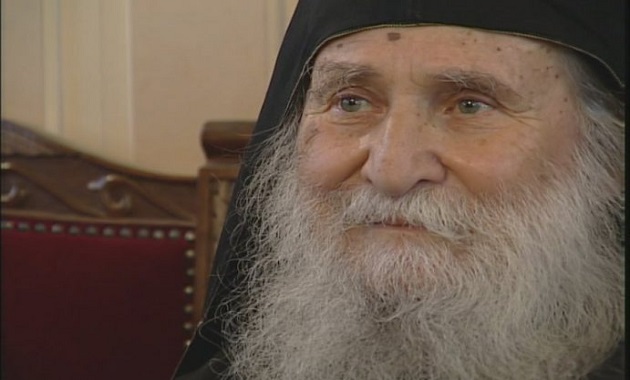Saint Paul describes and analyzes love
16 July 2021(Ed. Stelios Koukos)
Love is the product of faith and of our submission to the divine will: it’s the ‘fulness of the law’ and a ‘more excellent way’, according to Saint Paul. The three chief apostles, Peter, John and Paul have this to say about it in particular: ‘above all, love one another with all your soul’ (1 Peter 4, 8), stressing the ‘above all else’. In his Gospel and Epistles, John, who is considered to be the outstanding apostle of love, describes its origins and its place in the realm of rational beings.
But here we’ll restrict ourselves to the description of love attempted by Paul in his 1st letter to the Corinthians, since it’s more detailed and practical.

Paul doesn’t merely describe it, he also analyzes it, in order to show us its constituent parts, not in its nature- because that’s divine and beyond our comprehension- but in its energies.
After describing all the wonderful gifts with which the apostles, the teachers and the prophets were endowed- their healing powers, interpretation and speaking in tongues, it’s as if he’s less than satisfied about his encouragement so far and continues by asking us to ascend higher.
‘And yet I show you a more excellent way. Though I speak with the tongues of men and of angels, but do not have love, I have become sounding brass or a clanging cymbal. And though I have the gift prophecy, and understand all mysteries and all knowledge, and though I have all faith, so that I could remove mountains, but do not have love, I am nothing. And though I bestow all my goods to feed the poor, and though I give my body to be burned, but do not have love, it profits me nothing.
Love suffers long and is kind; love does not envy; love does not parade itself, is not puffed up; does not behave rudely, does not seek its own, is not provoked, thinks no evil; does not rejoice in iniquity, but rejoices in the truth; bears all things, believes all things, hopes all things, endures all things. Love never fails’ (1 Cor. 12, 31-13, 8). After demonstrating, in his analysis, the transience of the other great gifts of the Holy Spirit, he notes that, of all of the three, faith, hope and love, love alone will last forever: ‘And of these, the greatest is love’ (1 Cor.13, 13).
This is precisely why he called it the ‘superior way’. It may be that some people are surprised by this, given the other sublime, enviable and greatly useful gifts through which, at various times, saintly people have bestowed benefits on others. We might refer to a few of these examples in order to confirm Paul’s words.
If you have the gift of tongues, that is if you speak to each person in their mother tongue about God’s saving providence, not from much study but spontaneously, with the grace of the Holy Grace, this is no small thing. But speaking in tongues is a transient gift, which will disappear with this world. When everything’s completed in Christ, there’ll be no need for language.
Another gift is prophecy. Again, it’s no small thing to know the hidden things about people, the intentions of God’s providence for the present and the future. But prophecies will disappear when the end comes.
Even faith. What is it but a means which brings us to the end result: we believe in order to come closer to God, to have a relationship with him and to be united with him. Once this is achieved, faith is superfluous, since eventually we’ll actually see what we had previously accepted through faith.
So if we have all these gifts in the absence of love, it’s as if we’re creating wonderful images or statues of great people. But these aren’t the actual persons; they’re just images, lifeless shapes. They have no part in life, because ‘Life’ eternal, is God alone. (Jn. 17, 3; 1 Jn. 5, 20).
Excerpt from a talk by Elder Iosif Vatopaidinos on ‘Love’. The text can be found in the book Λόγοι παρακλήσεως, published by the Holy and Great Monastery of Vatopaidi, the Holy Mountain.






